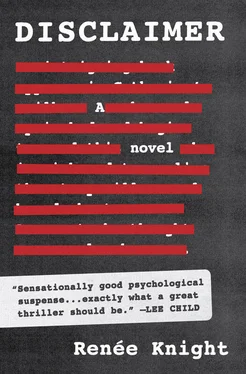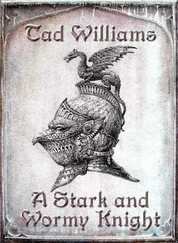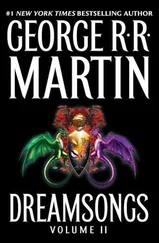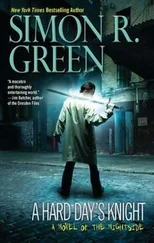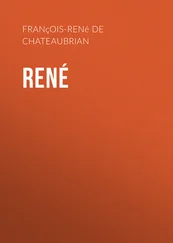I had put the photographs out of sight in my desk drawer but they were at the heart of the story so I took them out and pinned them to the window frame. They formed a collage of sex and deceit, a kind of mood board. Every time I watched that young family coming in or out of their house I was reminded, by the frame through which I viewed them, of how innocence is so easily corrupted. It kept me focused.
I didn’t rush it, I spent months copying out Nancy’s manuscript into my own hand. I wanted to know how she had felt when she constructed those sentences; I wanted to get into her head, to see what she had seen when the words appeared on the page. I wrote by hand because I needed to feel the shape of each letter; for my skin to make contact with the paper and feel its smoothness as my hand moved from left to right, slithering across the page. There could be no distance between me and it. Skin, pen, paper, skin — I wanted them to become one. I took as long as I could and enjoyed the rhythm of the words, digesting every one. There were moments when I felt a sentence could be improved on, but I didn’t stop to make corrections at this point, I pressed on, telling myself that only when I had reached the end would I allow myself to look back, like a climber approaching the summit. Don’t look down.
I remembered how Nancy and I had laughed at writers who made the preposterous claim that they had been possessed by their characters, that it had felt to them as if their book had written itself. For me, at least, this was true. I saw the characters leap from the page, alive, fully formed. Fleshed out and breathing. My hand, slippery yet firm, ejaculating the words as they flowed from Nancy into me.
The experience was life giving, opening the door for Nancy to come back to me, her gentle, loving presence returning to our home. At the end of each day’s writing, when my hand ached from it, I made myself tea and toast and read aloud to her, as if she were sitting in her old chair opposite me.
And then, when I was finally satisfied, I typed it up. Bang, bang, bang went my fingers, nailing each word to the page. And then it was done. How long did it take? From beginning to end? I spent a year with Nancy’s manuscript, copying it out, but the real beginning of course was years ago, I just hadn’t recognised it then. I felt Nancy smiling at me, encouraging me on. She always said that one day my writing would break through.
As soon as the front door closes behind Nicholas, Catherine locks herself in the downstairs loo. The weapon being used to torment her had been practically placed in her son’s hand, although so far Nicholas doesn’t seem to realise that he has a direct connection to the book. She hears Robert outside the door and picks up a magazine, rustling the pages to let him know she’ll be some time. She looks down at her knickers hanging around her ankles and is suddenly awash with self-pity. She doesn’t deserve this. Why torment her? And why now? She begins to cry, almost wanting Robert to hear and comfort her. He is standing just on the other side of the door.
“Are you okay?”
“Fine, yes.” She rustles the magazine again then stands, pulling up her knickers and blowing her nose under the sound of the flushing toilet. She checks herself in the mirror. She looks like shit but it’s Sunday, that’s allowed. Pull yourself together, you stupid cow. Read the rest of the book, stop putting it off. Just face it. And then you will know what to do, what you are up against. She smiles at her reflection, and almost laughs at the madness of it.
It is three in the morning and Robert is asleep. She had managed to get through their evening together and then, when they were in bed, gone through the ritual of lying next to him feigning sleep, waiting for him to doze off, and then she had crept back downstairs and locked herself in the loo again. Now she is reading a description of her own death. Of how someone else has imagined it. Of how it will end for her. And it is merciless. It is messy. And she sees what she would not be able to see if she was dead. The image others would see when they looked down at her. Her skull crushed, leaking brains. Her tongue severed by her own teeth. Her nose, sliced off, wedged under a cheekbone. That’s what the train would do to her after she’d jumped in front of it. Only Catherine would know, as she fell, that in fact she hadn’t jumped at all. She had been pushed. Very gently, nudged. Tipped over onto the track, just as the train is coming into the station. It is busy. There are crowds of people. Such a terrible accident. But the price she must pay for living the past twenty years as if everything is absolutely fine.
Fear this intense is a distant memory for Catherine. She had forgotten what it was like. She is middle aged, an age where death sidles up and plays on the mind more frequently, but she has always succeeded in marching onwards, shrugging off the pinchy fingers of fear that might snag her progress. But now she is caught in their grip. The hatred directed at her is undiluted. It’s the sort of hate she imagines directed at sadistic murderers and child molesters, but she is neither of these. They have twisted her into something vile. They have defaced her character. They want her to explain herself. Why should she? She shouldn’t have to. That is not the role she should be cast in.
Catherine is the one who teases the truth from people. She has made a career out of it. It is what she is good at. She is persuasive, one of the best. Seducing the truth from people, opening them up, filleting out the delicate secrets they’d rather not reveal, then laying them out on a slab for others to look at and learn from; and all done in a perfectly charming way, never ever giving anything of herself away. And she will not open herself up for examination now. She will hunt out the hunter. They have twisted this story. But who are they? Someone she has never met? Yes, someone she doesn’t know. She reads the last sentence again: “Such a pity she hadn’t realised that doing nothing would be such a deadly omission.”
She wants to screw up this book but its two hundred pages are stronger than she is. She will destroy it though. She will not be passive. She rises from her seat, dressing gown flowing, and strides into the kitchen. She finds the matches, long, elegant matches whose only purpose to date has been to light fig-scented candles, and strikes one, holding the flame against the cover of the book. It is slow to burn, the laminated cover resistant, at first only issuing a toxic smell. But then the pages begin to catch, edges blacken and produce a sliver of red, and then a blue and yellow glow as the fire takes. She holds the book for as long as she can before burning her fingers, and then drops the fiery bundle into the sink, turning on the tap and extinguishing the fire she had started.
“What are you doing?” She doesn’t move. Robert thunders towards her and stares down into the blackened mess. They both stare at it, this thing which, despite all her efforts, is still recognisable as a book. He is standing next to her, searching her face for an explanation. Catherine sidles away from him, pulling her dressing gown tighter.
“Catherine?”
She shakes her head. Caught. She has been caught. Perhaps she wanted to be. Perhaps it is for the best. Between finger and thumb Robert lifts the sodden pulp and holds it up: “perfect,” the only distinguishable word left on the jacket.
“It’s about me.” She might as well have said, “I’ve lost my mind.” She wishes she could suck the words back, but they are out now. Is this what she wants? To tell him? Now?
“Darling,” she hears confusion and anguish wrapped in the word as Robert drops the book back into the sink. She grabs at it with both hands, rushing it to the bin as if it is still on fire, and drops it in. She pulls out the black bag and ties it up. All this done at speed, as if someone has pressed fast forward. She runs the bag to the front door and out of the house, dropping it into the dustbin outside, and banging down the metal lid. Slowly now, she walks up the steps back into the house and closes the door behind her.
Читать дальше
